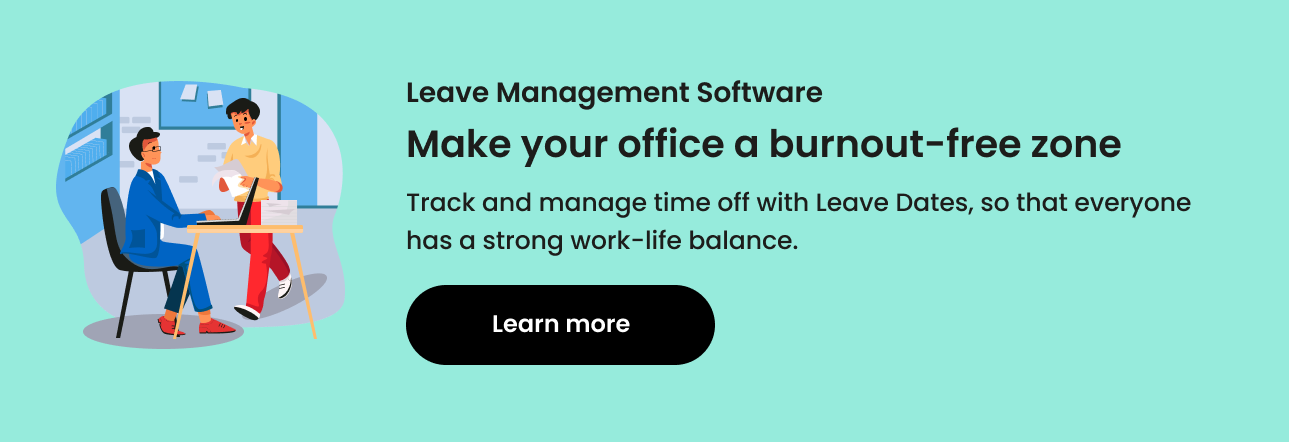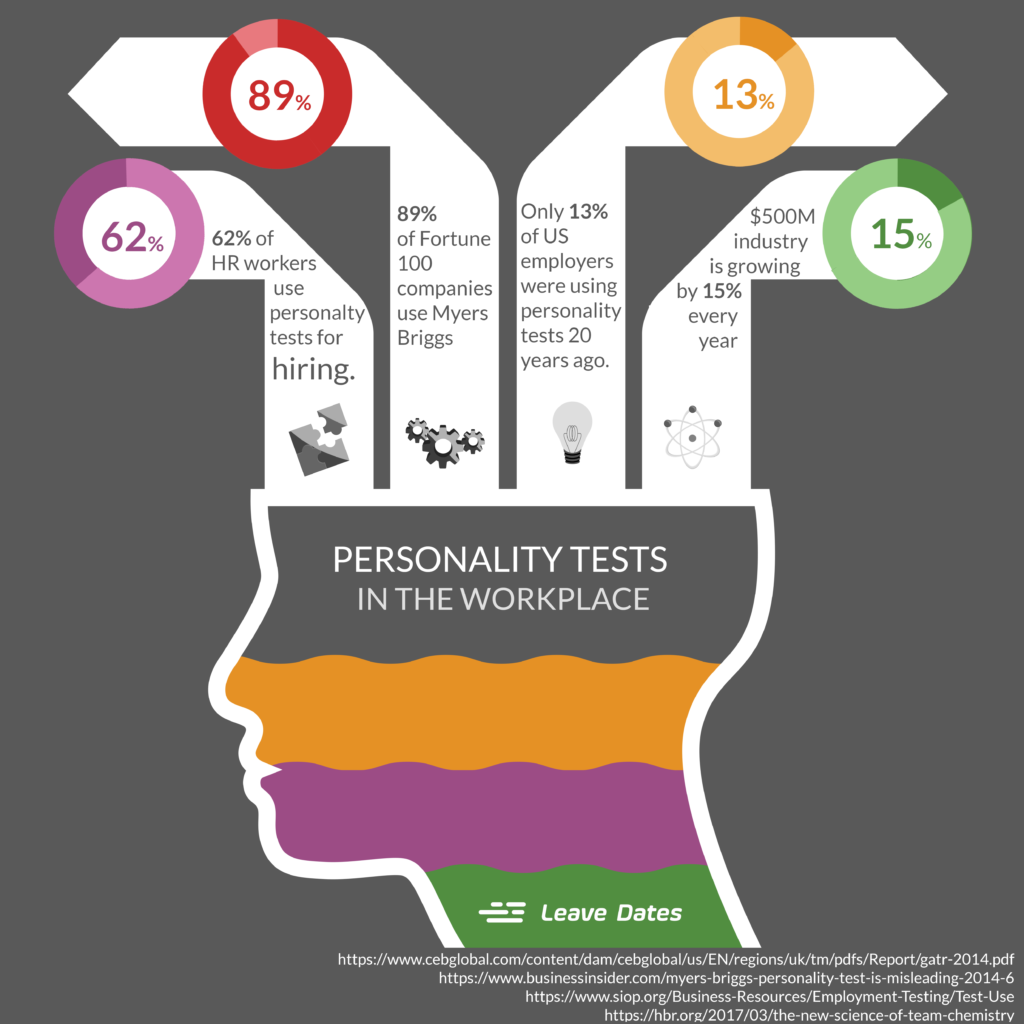
Personality tests are questionnaires, surveys, and assessments that use set questions and tasks to categorise people into certain ‘types’ based on their attitudes, preferences and patterns of behaviour.
Using personality tests in the workplace provides a picture of an employee that helps to identify where in an organisation a person might be best placed. They can also address how well-rounded – or not – different teams are, what skills gaps might be present, and what management style you might adopt to get the most out of people. Personality tests can help you to discover hidden talent within your team and uncover opportunities to let your people excel in their roles, maybe even find them a role that is better suited.
Ultimately, personality tests provide data, and data enables more informed decision-making.
In this case, it's date about your people - the lifeblood of any organisation.
The results, whilst not something that should be taken as cast-iron fact, can help to inform team building and selection.
The personality testing industry has an estimated worth $2 Billion and growing at a rate of 10-15% every year.
So what is fueling this growth, and why do companies use personality tests in the workplace?
Building balanced teams
A successful project team will need a range of skills and personality types to deliver on time, on budget, and to spec – a team made up of six of the same type of person may double down on shared strengths, but they will also share the same weaknesses. Imagine, in a team made up of only perfectionists, nothing would ever be finished; in one full of alphas, you’re asking for conflict.
Understanding the different personalities in your organisation or department enables you to build a team with complementary skills, where the weaknesses of some are made up for by others’ strengths.
- What kind of work is it?
- What are your goals?
- Is there a tight deadline?
Some people work best under pressure, others buckle under the weight of it – knowing your people means you can get the right people on the job, enabling everyone to thrive and perform at their best.
Keeping an eye on employee wellness
Workplace personality tests can help managers and staff identify potential wellness issues within the team. Where personality tests reveal high-level conscientiousness or the tendency to over-work, burnout patterns may appear over time. Pairing personality types with leave records may give valuable insight and help managers encourage team members to use their leave entitlements.

Avoiding personality clashed and conflicts at work
One area where an employee personality test can be hugely beneficial is in avoiding conflicts. Understanding people’s triggers – what winds people up, stresses them out, or demotivates them – means situations that could escalate to become a conflict can be avoided entirely or defused quickly.
If you know that John in Accounts finds it stressful working under the pressure of an impending deadline, you might stay out of his way in the last week of the financial year. If you know both Julie and Darren are alpha types, you’ll likely get better results if you have them leading separate projects instead of fighting for dominance on the same team.
Recruiting the right people
The kind of data collected through personality tests can also help diagnose and resolve issues in existing departments or teams. As well as enabling you to recruit specific types of people to fill known gaps, personality tests can also help mix up or rearrange teams to inject new life or change the dynamic.
If someone if super qualified and working hard, but something isn't clicking, maybe they're not in quite the right role, or there's a clash with another personality in their team.
Maybe you’ve got a department overflowing with knowledge and skill, but they’re lacking a strong leader to drive their efforts towards a shared goal and keep one eye on deadlines or targets.
You might discover that some people work best entirely on their own, and putting them into a heavily team-based environment is counterproductive.
According to Psychology Today, 80% of Fortune 500 companies use personality tests in the workplace to assess staff and undertake professional development.
Driving personal development
Using workplace personality tests, you can create and guide personal development plans for employees, by identifying their strengths and weaknesses. For instance, if you identify an individual as being particularly introverted and note that they rarely speak up in meetings or contribute in certain settings, you can mark this out as an area where additional support could be needed.
What’s more, where these tests assign the individual a score in different dimensions, the data is quantifiable and measurable over time, enabling you to see if development efforts are effective.
Team bonding
Actually completing the tests themselves, and then discussing the results, can be fun and a fantastic bonding opportunity.
It allows people to get to know each other better, their different quirks and behavioural patterns. When people understand each other, they can communicate better, identify like-minded people, and know who to turn to when they face particular problems or situations.
Types of test
Perhaps the most widely known and used personality test is the Myers-Briggs Type Indicator (MBTI), which is based on four measurements: introversion/extroversion; sensing/intuition; thinking/feeling; and judging/perceiving.
MBTI is used by 89 of the Fortune 100 Companies.
Other tests include DiSC, which involves a set of questions designed to identify personality traits associated with Dominance, Influence, Steadiness, and Conscientiousness; and the Big Five model, which assesses openness, conscientiousness, extroversion, agreeableness, and neuroticism.
Clearly there are similarities here, and most tests assess the same or similar traits to understand how people behave, perform, and communicate at work.

Potential downsides
Of course, there are downsides to incorporating personality testing into the workplace.
The first and most obvious one is the cost. Depending on the type and manner of the test, it can cost money to take, as well as the cost of the time employees will have to spend completing it.
This cost is likely to be negligible when compared to the savings that can be made if the results are put to productive use, so it shouldn’t be a deterrent, but it should make you consider which tests are most relevant to your business and will be worth the time and money.
When using these tests, it's important to stress that there are no right or wrong personality types and that employees aren’t going to be judged or treated any differently based on their results.
There should be no sense of certain personality traits or types being valued over others.
A potential pitfall is that being labelled as certain ‘type’ of person could affect employees’ attitudes at work, perhaps making them feel it’s okay to stay in their comfort zone instead of challenging themselves to try something new.
You don’t want people to perceive there to be natural limitations of a particular personality type and to accept these, ruling themselves out of certain roles, activities or opportunities. There is a risk of labelling and pigeonholing people, creating certain expectations or perhaps even barriers.
You should make it clear that, whilst these tests are intended to categorise people, to a certain extent, they should not define them, and the results do not determine what opportunities are or are not open to people.

Data protection
If you’re going to use personality tests as part of a team-building session, you will need to inform people of this in advance and gain their consent to share their information, as you may find some don’t wish to, especially if the results weren’t what was expected or perhaps wanted.
It’s important that this kind of data is treated with as much rigour as any other personal information you hold on your employees, and you remain compliant with Data Protection legislation.
In summary
Overall, personality tests provide interesting and useful insight into the minds, behaviours, and preferences of your employees. This information can be used to make everyone’s working life more positive and productive.
Your staff will get to know each other, and perhaps even themselves, better; this helps improve communication and teamwork, which can only be a good thing.
It’s important to remember, though, that while a good mix of personalities is important, there is much more to building a successful team, and no decision should be based solely on the results of one of these tests.
Above all, the process should be non-judgemental and value-free – all personality types are equally valued in the workplace, as are all employees.
FAQs
How do companies ensure that staff do not feel stereotyped or judged by the results of their personality test?
Communication is vital, and setting a standard for how results are meant to be used (and not meant to be used) is crucial in ensuring that nobody is judged unfairly or discriminated against. The key is to educate your team on the value that all personality types bring to the team and that the results are designed to help management make the most of everyone's strengths.
Are there specific industries or job roles where personality tests are more or less effective in making recruitment decisions?
If you are using personality tests in your recruitment process, it is very important to understand that it only forms one part of the decision-making process and can have some limitations. Personality tests are unlikely to determine a candidate's capability to fulfil a role but may indicate how they could approach scenarios or specific challenges. The recruitment process may require additional assessments or qualifications specific to jobs and industries.
How do organisations challenge staff to explore new opportunities with knowledge of their personality type?
One challenge people and organisations face with personality type indicators is avoiding a culture where people feel defined by their results. It is essential to communicate that the purpose of personality types is to support personal and professional development and what team members are most suited to. Although personality tests can be seen as categorising people, offering programs for mentorship and other opportunities as a part of this process can prove your company's commitment to personal growth and increase uptake.



